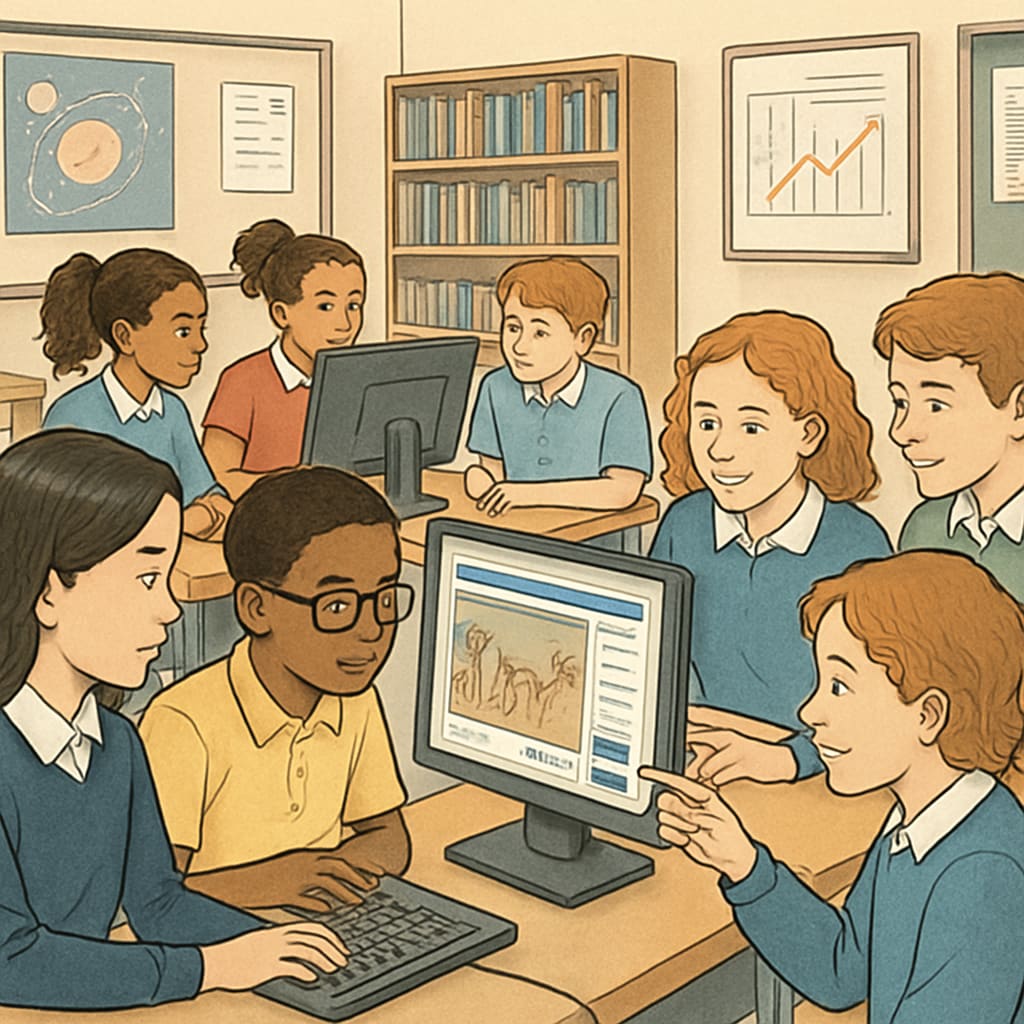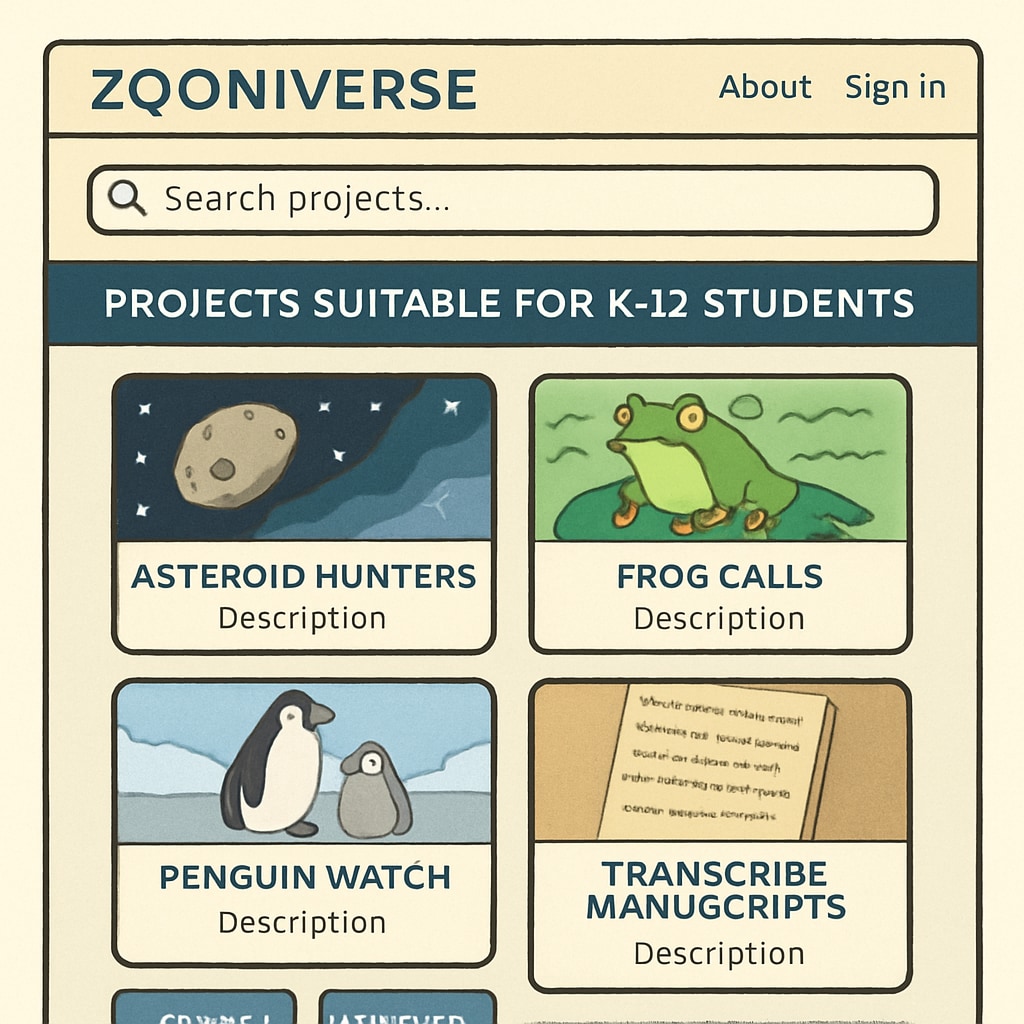Imagine a platform where K12 students can directly contribute to scientific discoveries, collaborating with researchers across the globe. Zooniverse, a leader in citizen science initiatives, offers this transformative experience. By participating in Zooniverse’s diverse range of scientific projects, students evolve from passive learners into active knowledge contributors, experiencing the thrill of scientific exploration firsthand. This integration of citizen science into classrooms not only enhances scientific literacy but also fosters interdisciplinary skills such as critical thinking, collaboration, and problem-solving.
What is Zooniverse and How Does it Empower Students?
Founded with the mission to democratize science, Zooniverse is an online platform that hosts a variety of citizen science projects spanning disciplines like astronomy, biology, history, and climate science. Students can assist researchers by analyzing data, identifying patterns, or classifying information that advances scientific studies. For example, in a project like “Galaxy Zoo,” participants help classify galaxies based on their shapes, contributing valuable insights to astronomical research.
The platform empowers students by giving them access to real-world scientific data, fostering a sense of ownership and purpose in their learning process. By engaging with Zooniverse projects, students experience the scientific method in action, transitioning from theoretical concepts to hands-on application.

Integrating Citizen Science into K12 Classrooms
Integrating Zooniverse projects into K12 classrooms can be both exciting and rewarding. Teachers can align these projects with curriculum standards to enhance learning in science, technology, engineering, and mathematics (STEM) as well as other subjects like history or environmental studies. Here are practical steps for incorporating citizen science into the classroom:
- Choose Relevant Projects: Select projects that align with your curriculum or students’ interests. For example, ecology students might enjoy identifying wildlife species in camera trap images.
- Set Clear Objectives: Define learning outcomes, such as understanding scientific processes or improving data analysis skills.
- Provide Guidance: Teach students how to navigate the platform and interpret data effectively. Encourage teamwork to replicate real-world scientific collaboration.
- Reflect on the Experience: Have students discuss their findings, challenges, and insights. These reflections deepen their understanding and encourage critical thinking.
By integrating these projects, teachers can cultivate a classroom culture of curiosity and exploration, inspiring students to pursue science beyond the confines of textbooks.
The Benefits of Citizen Science for Students
Engaging in Zooniverse projects offers numerous benefits for K12 students, including:
- Enhanced Scientific Literacy: Students learn how to analyze real-world data, ask questions, and draw evidence-based conclusions.
- Interdisciplinary Learning: Projects often require skills from various subjects, such as math for data analysis or writing for research summaries.
- Global Collaboration: Students become part of an international community of citizen scientists, gaining exposure to diverse perspectives and cultures.
- Empowerment and Engagement: By contributing to real research, students feel a sense of accomplishment and relevance in their learning.
According to Wikipedia’s definition of citizen science, these initiatives bridge the gap between professional researchers and the general public, creating opportunities for meaningful contributions. Zooniverse exemplifies this by offering projects that are accessible and impactful for learners of all ages.

Challenges and Solutions for Educators
While the benefits are substantial, educators may face challenges when incorporating Zooniverse into their classrooms. Here are common obstacles and strategies to address them:
- Limited Time: Integrate citizen science projects into existing lesson plans rather than treating them as standalone activities.
- Technical Barriers: Ensure access to reliable internet and familiarize students with the platform through guided tutorials.
- Student Engagement: Choose projects that resonate with students’ interests and encourage group discussions to maintain enthusiasm.
As a result of these proactive measures, educators can maximize the impact of Zooniverse projects while minimizing logistical hurdles.
Conclusion: Inspiring the Next Generation of Scientists
Zooniverse is more than a platform; it’s a gateway to scientific discovery for K12 students. By participating in citizen science projects, students learn to think critically, collaborate effectively, and contribute meaningfully to global research efforts. This hands-on approach transforms science education, equipping the next generation with the skills and curiosity needed to tackle future challenges.
For educators seeking innovative ways to engage students, Zooniverse offers an unparalleled opportunity to combine learning with real-world impact. By nurturing these young minds, we pave the way for a future where science is accessible, collaborative, and endlessly inspiring.


